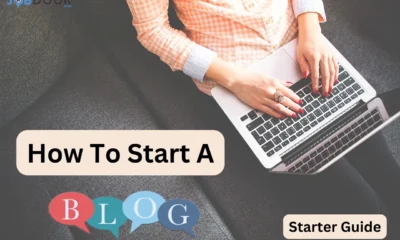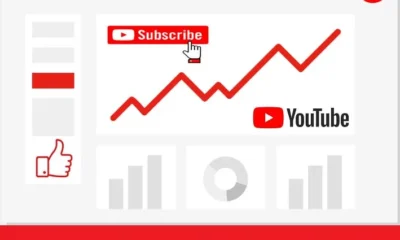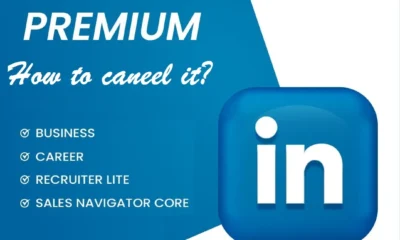Career
Career Opportunities for Seniors: 7 Jobs that are Perfect for Older Adults

Your Retirement income isn’t enough? Looking for some jobs at your retirement age? For retirees, who choose to remain involved and earn on a monthly or weekly basis. You are at perfect place for it. Before moving on to the best jobs for older adults or retirees, let’s talk about why work after retirement?
Why Work After Retirement?
In a perfect world all retirement savings could provide enough funds to completely ensure their financial security during their final days. However, this is impossible in every case. Every person takes different steps to plan for retirement and the decisions you have made during the span of years can influence how you’re going to experience in the moment.
Sometime, your retirement savings aren’t enough to meet the increasing expenses of living, or medical costs. In some cases, you need an extra bit of cash to pay for the travels that are on your bucket list.
Perhaps you’re looking to make savings to spend on fun, attempting to get rid of debt or simply trying to become more social and active. Whatever your motivations for getting a job once you’ve retired you have, there are opportunities for jobs which can aid you with the costs while enjoying your time in retirement.
There are various jobs you can do on a pretty flexible schedule. You don’t have to do full-time job; you can also commit to a job according to your schedule. In this article, we share with you 7 jobs that are best and suitable for older adults or retirees.
List of 7 Jobs that are Perfect for Older Adults:
1. Pet Sitter:
If you love spending time with animals or you go pretty well with them, then this is a perfect entertainment for you. When your family, friends or neighbors are away for vacation or work. They may need assistance for their pets.
You may have to take care for a variety of pets, including dogs, cats, birds, and other small animals. Strong communication skills, a genuine love for animals, and a sense of responsibility are essential qualities for a successful Pet Sitter.
| Also Read: 11 Things Rich People Do That The Poor Don’t |
There are 2 options you can choose for yourself, either start your own pet sitting business or join any animal care organization. Pet Sitters may work independently or be employed by pet-sitting services. This is a win-win job as it keeps you mentally and physically active.
Salary:
| Average Salary: | £31,000 annually |
| Entry Level Salary: | £22,000 annually |
| Experienced Persons Salary: | £72,000 per year |
How to Find Pet Sitter Jobs in UK?
You can find pet sitting jobs online on many popular websites like Care.com, Yoopies.co.uk, and Pawshake.co.uk.
2. Retail Worker:
A Retail Worker, also known as a sales associate, their primary responsibility is to assist customers, maintain store cleanliness, and contribute to a positive shopping experience. If you choose to work for larger companies, they even provide you with health insurance.
The role of a Retail Worker can vary based on the type of retail establishment, whether it’s a clothing store, electronics store, grocery store, or any other retail setting. Effective communication skills, a customer-focused mindset, and the ability to work well in a team are key qualities for success in this role.
This is one of the most popular jobs among seniors. It offers various benefits such as flexible hours according to your schedule and it doesn’t require any specific skill to join. Just a friendly communication with customers and you are loved by everyone!!
Salary:
| Average Salary: | £30,000 annually |
| Entry Level Salary: | £24,000 annually |
| Experienced Persons Salary: | £57,000 annually |
How to Find Retail Worker Jobs?
Visit the UK’s Find a Job official website to find the current Retail Worker jobs.
3. Tutor:
Are you interested in sharing your knowledge or you have the ability to explain matters in a very well way? You can help many others successfully gain that knowledge. Tutoring is best for those. You can adjust your timing according to your comfort and even choose your clients.
A tutor is an educator that provides group or individual instructions to students in specific subjects or skills. They are usually employed in diverse settings such as colleges, schools or private tutoring centers as well as may work as an independent.
You can teach from elementary school students to university going students. You can even teach anyone in the world by conducting online classes using your smartphone. After Pandemic, the tutor jobs are highly in demand. This job will keep you engaged in gaining knowledge for yourself as well as sharing what you have.
Salary:
| Average Salary: | £48,000 annually |
| Entry Level Salary: | £39,000 annually |
| Experienced Persons Salary: | £68,000 annually |
How to Find Tutor Jobs?
There are a number of websites online like where you can apply for the tutor jobs.
4. Temporary Office Assistant:
If you are a senior who compete with its physical and mental health but still wants to keep going. This temp work is for you. Flexibility is a big advantage in such works. You can tell your co-worker about your schedule or when you are feeling enough to work. In addition, temp works doesn’t require much of a physical work.
You work as an office assistant on a temporary basis and your job is to provide clerical or receptionist services. In this position you may assist with filing paperwork, assuring the proper organization of documents, answering phone calls and offer other administrative assistance as needed. The details of this job are contingent on the company you work for.
An employer may hire temporary office assistant for additional support during the busiest times of the year, or to cover a full-time worker’s absence. The timeframe for employment varies and a temporary designation for this position typically involves working for one period of one year or less. You can choose your category of temp work from various websites or through agents.
Salary:
| Average Salary: | £25,000 annually |
| Entry Level Salary: | £22,000 annually |
| Experienced Persons Salary: | £36,000 annually |
How to Find the Temporary Office Assistant Job?
You can find the current opportunities near you at UK National Careers Service official website.
5. Concierge Service:
If you live in a town or city, which is famous for tourist attractions. You may have many job opportunities at such a place. You know your city well? Then that’s perfect and if you don’t, think of this opportunity to learn more about it.
The word “concierge” originally refers to “the staff in hotels” who were responsible for assisting guests with information, making reservations, and providing other services to enhance their stay. However, the concept has expanded beyond the hospitality industry and is now utilized in various sectors.
All you need to know is about the city’s famous restaurants, tourist attractions and guides. You get to bask in the light of your guest’s appreciation as they boast about the dinner or they place they have visited. Since the job is pretty flexible, you even get to work on weekends.
You will have to assist guests on their selection on the packages on your hotel or many other activities. If you work for a larger hotel chain, you should expect better and higher employee benefits such as free or discount stay at their place or free meal at a restaurant.
Salary:
| Average Salary: | £23,000 annually |
| Entry Level Salary: | £21,000 annually |
| Experienced Persons Salary: | £30,000 annually |
How to Find Concierge Service Job?
You can find more than 6000 Concierge Service job on LinkedIn, and JobSite.
6. Craftpreneur:
Have a talent for crafts? You know how to Knitt or pottery? Why don’t you start making and selling them? Homemade products such as soaps, macrame, knitted items or any such personal crafts or artisan goods have a large demand on market. This is right job to utilize your hobby as a money-making machine.
You can create virtual shop online or make yourself a page on Instagram or Facebook and get yourself first in gossips of shopping lovers. Virtual shop allows you to reach out to consumers around the world and increase your demand. You can even set up your stalk in seasonal fairs or events at your town.
Being a craftpreneur can give older adults the freedom they need in “retirement.” If you’d like to take the month away to travel and explore the world, you can simply design a set of “limited edition” items and take off out for a trip around the globe.
Salary:
| Average Salary: | £34,000 annually |
| Entry Level Salary: | £17,000 annually |
| Experienced Persons Salary: | £57,000 annually |
Helpful Resources:
The Craft Council offers a program of support for craft businesses, ranging from one-to-one advice sessions, online resources, and one-off workshops to Hothouse, a 6 month development program for emerging makers.
You can also follow @CraftsYouth on Twitter for craft related job vacancies, apprenticeships, training schemes, and for craft exhibitions and workshops.
7. Security Guard:
This job position is the best for seniors. Because seniors often have the patience and life experience to succeed in this career. This job doesn’t require any education qualifications or specific skills. You only need to pass few tests such as background check and drug test.
The specific duties can vary depending on the employer and the nature of the security assignment. For armed guards, the training and required qualifications are more extensive. If you can’t sleep at night or find yourself more active during night hours, then you can go for night shift.
Security Guards monitor and patrol assigned areas to identify and prevent security risks. This includes using surveillance equipment, such as cameras and alarms, to keep a watchful eye on the surroundings.
Salary:
| Average Salary: | £23,403 annually |
| Entry Level Salary: | £21,450 annually |
| Experienced Persons Salary: | £29,123 annually |
More Information:
Visit Here to know more about Security guards and related occupations.
Career
CV vs Resume: What are the Key Differences?
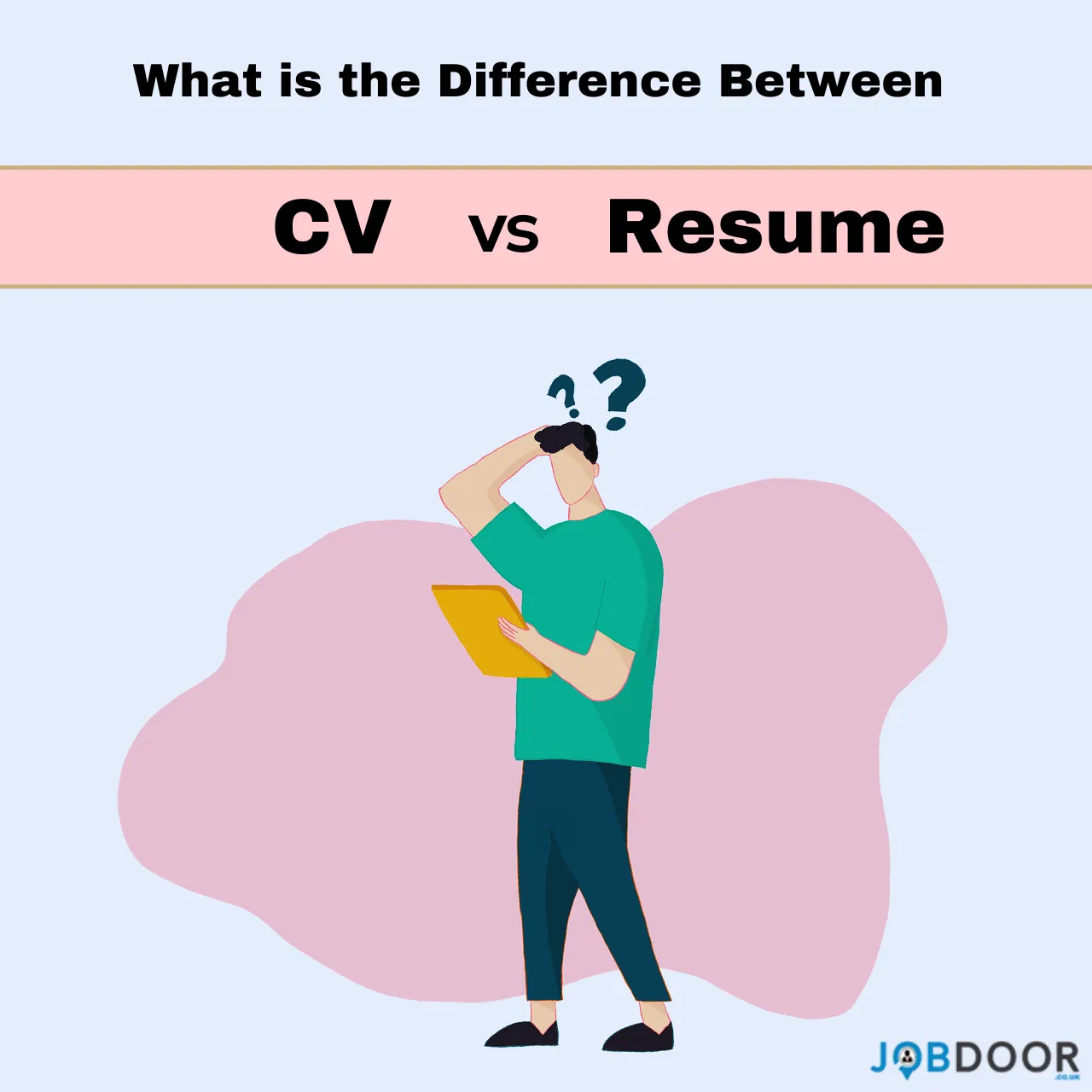
This guide will show you the differences between a CV and a resume and give you everything you need to know to create either one!
I still remember the night before my big job interview, and I was frantically updating my resume. I had spent hours perfecting the layout, choosing the right words, and double-checking for any typos. As I stared at the screen, I couldn’t help but wonder – should I be creating a CV instead?
The truth is the lines between a CV (curriculum vitae) and a resume can get a bit blurry. They’re both important tools in your job search, but there are some key differences you need to know. Whether you’re a recent graduate or an experienced professional, understanding these distinctions can give you a major advantage.
So, let’s explore the world of CVs and resumes, shall we?
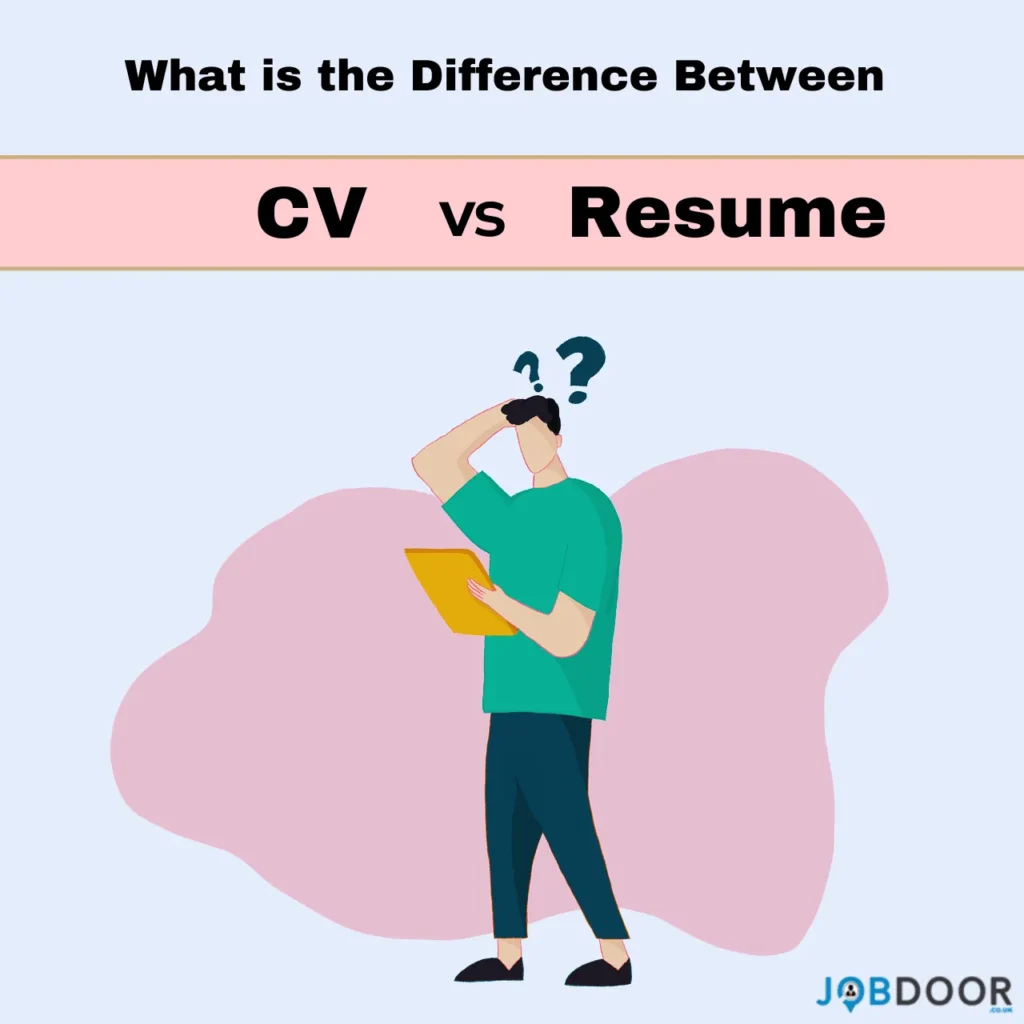
What is the Difference Between CV and Resume?
At their core, a CV and a resume serve the same purpose – to showcase your skills, work experience, and qualifications to a potential employer. However, the way they’re formatted and the amount of information they contain can vary greatly.
Resume:
A resume is typically a concise, one-page document that highlights your most relevant work history, education, and key achievements. It’s designed to give the employer a quick, high-level overview of your background. Resumes are often used for more traditional job applications, especially in the United Kingdom.
CV:
On the other hand, a CV is a more detailed and comprehensive document that can span multiple pages. It provides a complete chronological record of your academic and professional history, including publications, awards, certifications, and other accomplishments. CVs are more commonly used in academia, research, or international job searches.
The Length Factor:
One of the most obvious differences between a CV and a resume is the length. As mentioned above, a resume should typically be just one page, while a CV can be several pages long. To precise resumes are to be no longer than 1-2 pages, while for CVs, there is no real rule or limit to how many pages it can have. However, it would seem that most CVs fall between 2-8 pages.
This is because a CV is meant to be a more in-depth representation of your entire career journey. It allows you to showcase the breadth and depth of your experience, education, and achievements. A resume, on the other hand, is designed to be a concise summary of your most relevant qualifications.
The level of detail you include in a CV can also vary depending on your field and the specific requirements of the job you’re applying for. For example, an academic CV for a research position might be much more extensive than a CV for a corporate job. One of more we would like to add here is that more than 80% of CVs are only fit for the dustbin so be care when writing one read our full guide.
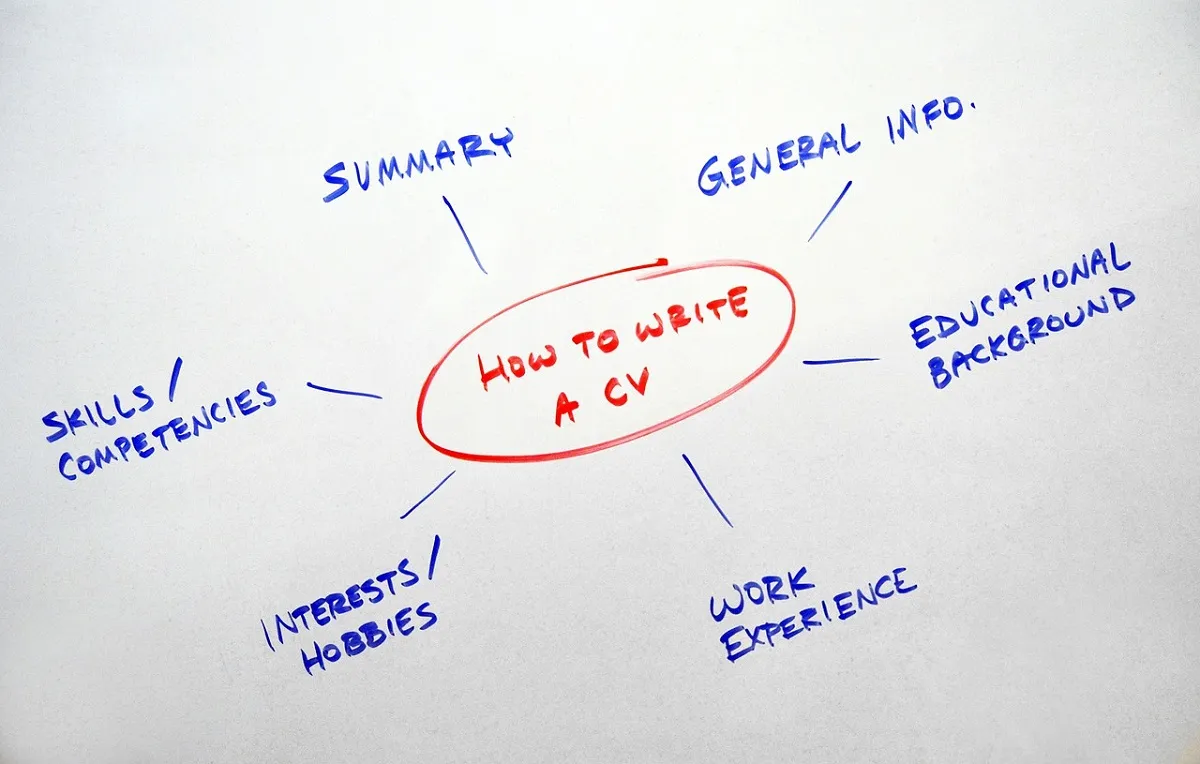
What to include on a CV:
- Contact information
- Education
- Skills
- Certificates
- Publications
- Presentations
- Research interests and experience
- Awards & honors
- Work experience
- Languages
- References
What to include on a Resume:
- Personal Details
- Qualification
- Skills
- Work experience
- Certifications
- Current job
- Languages
- Contact information
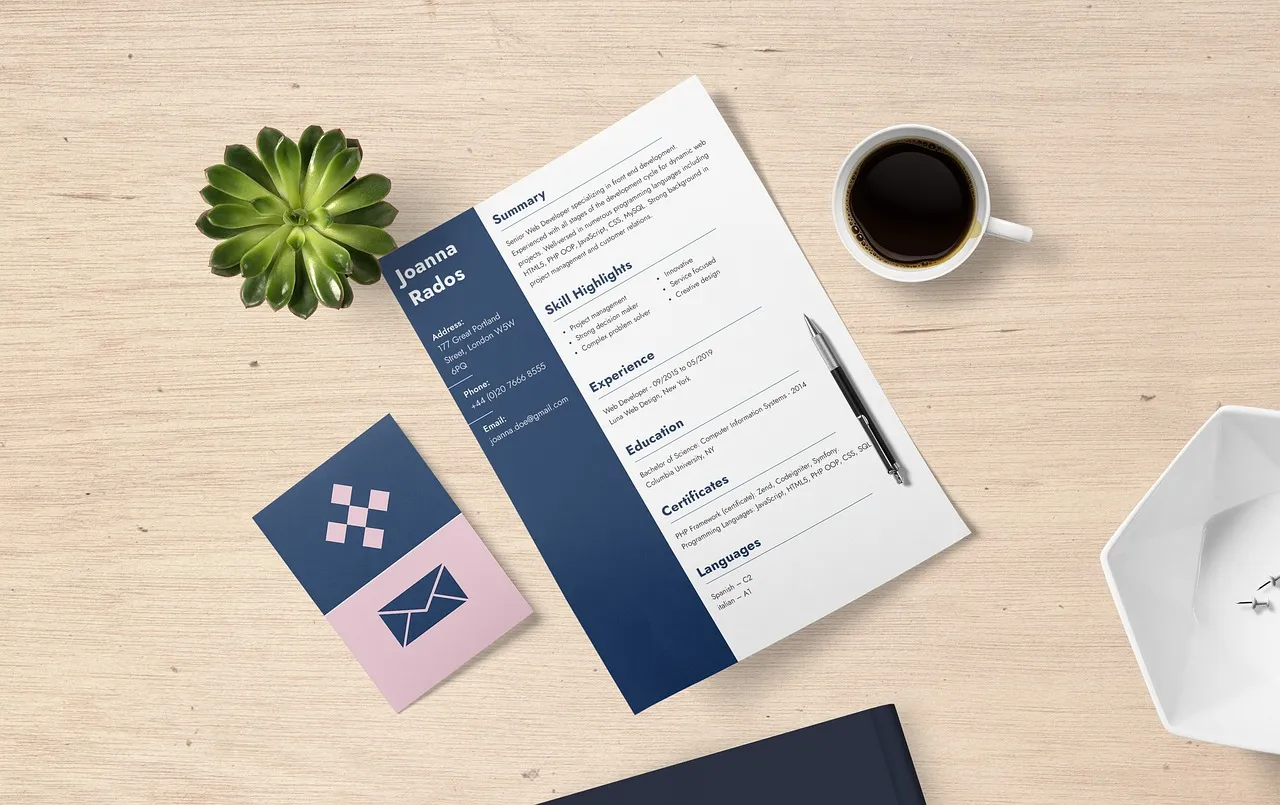
Tailoring Your Approach:
Another key difference is the level of customization required for each application. With a resume, you’ll want to tailor it to the specific job you’re applying for, highlighting the skills and experience that are most relevant. This might mean rearranging the order of your work history, emphasizing certain accomplishments, or even removing irrelevant information.
CVs, on the other hand, tend to be more static documents that you can use across multiple applications. While you may still want to adjust the order or emphasis of certain sections, the overall structure and content of your CV will typically remain the same.
That said, it’s important to remember that both your resume and CV should be regularly updated to ensure they accurately reflect your current skills and experience.
The Positive and Negative Sides:
Now that we’ve covered the basics, let’s explore the pros and cons of each approach.
The Positive Side of Resumes:
- Concise and easy to scan, making it more likely to catch the employer’s attention
- Allows you to highlight your most relevant and impressive qualifications
- Faster and easier to customize for each job application
The Negative Side of Resumes:
- Limited space means you may have to omit important details or achievements
- Employers may perceive a one-page resume as lacking depth or substance
- Harder to showcase the full breadth of your experience and qualifications
| Also Read: How to Prepare for Remote Interviews? |
The Positive Side of CVs:
- Provides a comprehensive and detailed record of your academic and professional background
- Allows you to showcase a wider range of accomplishments, publications, and certifications
- Demonstrates your depth of knowledge and expertise in your field
The Negative Side of CVs:
- Can be time-consuming to create and update
- Longer length may make it harder for employers to quickly identify your most relevant qualifications
- Some employers may prefer a more concise and focused resume

Which One Do You Use CV or Resume?
So, how do you know which one to use? The answer really depends on the specific job and industry you’re targeting.
If you’re applying for a more traditional corporate or business role, a resume is probably the way to go. But if you’re pursuing an academic, research, or international position, a CV may be the better choice.
Regardless of which route you choose, here are some tips to help you create a standout document:
- Research the employer’s preferences. Some job postings may explicitly state whether they want a resume or CV. Make sure to follow their instructions.
- Highlight your most impressive and relevant accomplishments. Don’t be afraid to showcase your achievements, awards, and special skills.
- Use clear, concise language and formatting. Make it easy for the employer to quickly scan and understand your qualifications.
- Tailor your document to the specific job. Emphasize the skills and experience that directly match the role you’re applying for.
- Proofread, proofread, proofread. Double-check for any typos or errors before submitting your application.
| Also Read: 12 IT Jobs That Don’t Require Coding Skills |
Examples and Case Studies:
To bring these concepts to life, let’s take an example:
Let’s say Sarah, a recent college graduate, was applying for entry-level marketing positions. She created a one-page resume that highlighted her internship experience, relevant coursework, and impressive academic achievements. This allowed her to showcase her qualifications in a concise and compelling way.
On the other hand, Dr. Michael, a tenured professor, used a detailed CV when applying for a research fellowship. His CV included a comprehensive list of his published papers, conference presentations, and awards, demonstrating his extensive expertise in the field.
By understanding the differences between a CV and resume, both Sarah and Dr. Michael were able to tailor their application materials to the specific requirements of the roles they were pursuing.
So, if you want to describe this in one sentence then “Resume is like a fresher (beginner) and CV is an experienced professional”.
Visual Example of a CV:
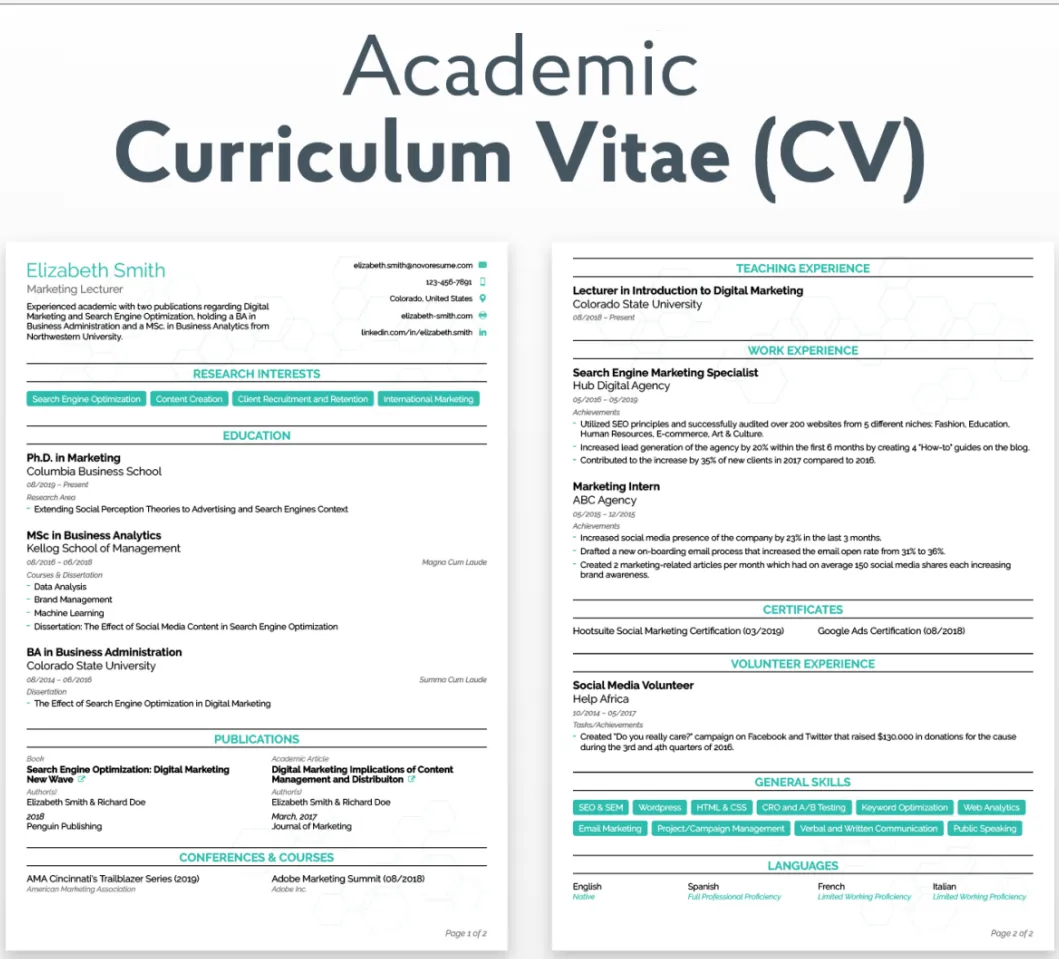
Visual Example of Resume:
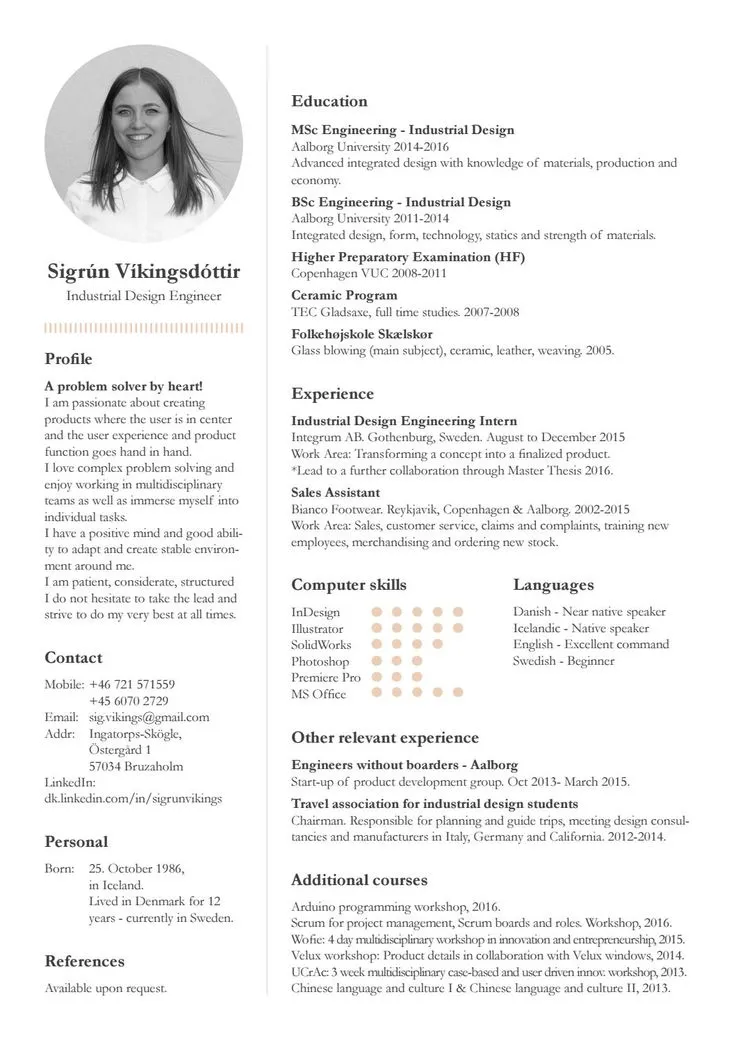
Creating a Connection:
At the end of the day, whether you choose a CV or a resume, the goal is to present your qualifications in the most effective way possible. By understanding the nuances between these two important documents, you can position yourself as the ideal candidate and make a lasting impression on potential employers.
So, the next time you’re preparing for a big job interview, don’t stress about whether to use a CV or resume. Instead, embrace the opportunity to showcase your unique story and experience. After all, you’ve got this – and I’m rooting for you every step of the way!
Career
The Advantages of Hiring BAME Candidates
Are you looking to diversify your workforce? Have you considered hiring Black, Asian and Minority Ethnic (BAME) candidates? Hiring a diverse workforce can bring a range of benefits to your organisation. Today, we are going to discuss the advantages of hiring BAME candidates and how it can positively impact your company.
Research has shown that diverse teams are more innovative and creative. When individuals with different backgrounds and perspectives come together, they can bring new ideas and solutions to the table. This can lead to increased productivity and better decision-making. Additionally, having a diverse workforce can help your company better understand and connect with a wider range of customers and clients.
Furthermore, hiring BAME candidates can also help to improve your company’s reputation. By demonstrating a commitment to diversity and inclusion, you can attract a wider pool of talent and customers who value these principles. Additionally, having a diverse workforce can help to reduce unconscious bias and promote a more inclusive culture within your organisation. Overall, hiring BAME candidates can bring a range of benefits to your company and help to create a more equitable and inclusive workplace.
According to Business In The Community (BITC):
- 29% of both white and BAME candidates secured jobs when applying directly to an employer.
- 44% of white candidates but only 29% BAME candidates were offered jobs when applying through a recruitment agency.
| Also Read: How to Find Your Perfect Green Job? |

Image: Pixabay
1. Enhanced Creativity and Innovation:
When it comes to driving innovation and creativity, diversity is key. Hiring BAME candidates can bring fresh perspectives and ideas to the table that may not have been considered before.
Diverse Perspectives:
BAME applicants come from a variety of cultures and backgrounds, which can provide a wealth of diverse perspectives. These perspectives can help to challenge the status quo and encourage new ways of thinking. When individuals with different work experience and viewpoint come together, they can collaborate to create innovative solutions that may not have been possible otherwise.
Problem-Solving Skills:
They often have unique problem-solving skills that can benefit the organization. They may have experience overcoming challenges that are different from those faced by other employees, which can bring a new level of creativity to the table. Additionally, they are more adaptable and able to think on their feet, which can be invaluable in fast-paced work environments.
Broader Market Understanding:
They can bring a wealth of benefits to your organisation. One of the most significant advantages is a broader market understanding. By hiring them, you can gain valuable insights into different cultures and communities. This can help you to better understand your customers and improve your business practices.
Cultural Competence:
They can bring a high level of cultural competence to your organisation. They have a unique perspective on the world and can offer valuable insights into different cultures and customs. This can be particularly useful if your company operates in a global market or has customers from diverse backgrounds.
Customer Insights:
BAME candidates can also provide valuable customer insights. They may have a better understanding of the needs and preferences of customers from different backgrounds, which can help you to tailor your products and services to better meet their needs.
By hiring BAME candidates, you can tap into a wider pool of knowledge and expertise. This can help you to develop more effective marketing campaigns, improve customer service, and ultimately increase your bottom line.
In conclusion, hiring BAME candidates can bring a range of benefits to your organisation, including a broader market understanding. By embracing diversity and inclusivity, you can create a more innovative and successful business that is better equipped to meet the needs of a diverse range of customers.
| Also Read: 10 Key Factors for Workplace Success |
2. Improved Company Reputation:
Hiring BAME candidates can help improve your company’s reputation in various ways. Here are some of the benefits you can expect:
Corporate Responsibility:
By hiring BAME candidates, you demonstrate your commitment to diversity and inclusion in the workplace. This can help you build a positive image as a socially responsible company that values and respects people from different backgrounds.
Many job seekers today prefer to work for companies that share their values and beliefs. By creating a diverse and inclusive workplace, you can appeal to a wider pool of candidates and increase your chances of finding the right people for your team.
Brand Loyalty:
Consumers today are more conscious about the social and environmental impact of the companies they do business with. They are more likely to support companies that align with their values and beliefs. By promoting diversity and inclusion, you can build brand loyalty among customers who value these principles.
In fact, a study by Accenture found that 41% of consumers have shifted their business away from a company that they perceived as not being inclusive. By contrast, companies that are seen as inclusive can benefit from increased customer loyalty, positive word-of-mouth, and a stronger brand reputation.
3. Higher Employee Engagement:
When you hire BAME candidates, you increase employee engagement in your workplace. Here are some reasons why:
Inclusivity and Belonging:
You can show the world that you value diversity and inclusivity in your workplace. This creates a sense of belonging among all employees, which leads to higher engagement levels. When employees feel like they are part of a team that values and respects them, they are more likely to be invested in their work and the success of the company.
Retention Rates:
It will also improve your retention rates. When employees feel like they are part of an inclusive workplace, they are more likely to stay with the company long-term. This reduces turnover rates and saves you money on recruiting and training new employees. For more insights on creating a positive work environment, check out our article on How to Improve Your Recruitment Strategy to Hire the Best Talent?
4. Competitive Advantage:
There are several competitive advantages that your business can benefit from. These advantages can help your company stand out from the competition and attract top talent.
Talent Attraction:
One of the main advantages of hiring BAME candidates is that it can help your business attract a more diverse range of talent. By actively seeking out BAME candidates, you are sending a message that your company values diversity and is committed to creating an inclusive workplace.
This can be a powerful message to potential candidates, especially those who come from diverse backgrounds. By demonstrating that your company is committed to diversity and inclusion, you can attract a wider pool of talented candidates who may not have considered your company otherwise.
By hiring BAME candidates, you can bring new perspectives and ideas to your team, which can lead to better outcomes for your business. Additionally, having a diverse team can help you better understand and serve a wider range of customers and clients, which can be a competitive advantage in today’s global marketplace.
Conclusion:
Overall, hiring BAME candidates can provide your business with a significant competitive advantage. By attracting top talent and improving your business performance, you can position your company for long-term success in a rapidly changing world.
Career
A Cover Letter is NOT Optional! Here Are Some Valid Reasons
What’s the value of writing a cover letter? Why do you need that if you are going to submit your resume? Does that not tell the entire story? NO WAY. Simply sending a resume is not enough. A cover letter is important. No cover letter with your resume is like leaving your house with a shirt and no pants. You wouldn’t do that, would you?
If you’re currently in the process of applying for jobs, you’ve probably come across the debate on whether or not a cover letter is necessary. Some people argue that a well-crafted resume is enough to showcase your qualifications, while others believe that a cover letter is a crucial component of a job application.
A good cover letter can prove in a few sentences that:
1. You understand the company’s opportunities and challenges
2. You are directly tied to the solution they need
3. You’ve experienced their situation before
4. You’ve delivered the kind of value they are looking for before
5. You are the right fit for the company.
A cover letter is a crucial part of any job application as it provides a platform to include every necessary detail that might not be covered in a resume. It allows you to personalize your application, showcase your personality, and explain why you are the perfect fit for the position.
A well-written cover letter highlights your key achievements, skills, and experiences that make you stand out from other candidates. It also demonstrates your interest in the company and the specific role you are applying for. Employers often use cover letters to gauge your communication skills, professionalism, and attention to detail.
Just a few sentences and bullet points to pique their interest and deliver your value message. That’s the value of a cover letter. Resumes today get about 10 seconds to impress. If your cover letter piques interest before the hiring manager turns to your resume, you just might earn some more of his or her valuable time. Therefore, taking the time to craft a strong cover letter can greatly increase your chances of securing an interview and landing the job.
| Also Read: How AI Can Help You Land Your Dream Job? |
| Also Read: 13 Best Jobs That Artificial Intelligence Can’t Replace |

Your cover letter is part of the resume package. The ‘package’ is not complete without the cover. Will everyone read the cover? Probably not. While I haven’t done a full study of how many HR consultants read them vs. those that don’t, I can tell you this: when I worked in human resources, I ALWAYS read them. I gained a better understanding of the candidate, what underlying skills he possessed and how he might contribute to the organization I represented.
Here are some valid reasons why a cover letter is a very important complement to your resume:
Your introduction:
Your cover letter serves as your introduction. You don’t expect to walk into someone’s house through their kitchen, right? The cover is your entranceway. Here, you can enter with grace, set the tone of what the reader should expect to see on the resume.
Add value to your role:
Your cover letter demonstrates your ability to put together a cogent sentence, or in this case many sentences about what you offer in a new position and how you can add value for a potential employer.
Showcasing your communication skills:
Another important reason to include a cover letter with your job application is to demonstrate your communication skills. A well-written cover letter shows that you can articulate your thoughts clearly and concisely, which is a valuable skill in any workplace. Additionally, it allows you to showcase your writing style and attention to detail, which can give the hiring manager insight into how you would communicate with colleagues and clients if hired.
Highlight your skills and experiences:
A cover letter is also a great opportunity to explain why you are a good fit for the role and the company. You can use the cover letter to expand on specific experiences or accomplishments that are relevant to the job, and to explain how your skills and work experience make you the ideal candidate. Your cover letter is an opportunity for you to highlight certain things that you might not have been able to include in the resume. For example, perhaps you have been designing model houses since childhood, but have worked in another industry and now want to enter architecture. A cover letter would be the optimal place to discuss such information and provide specific examples of what you have designed.
Addressing potential red flags:
If there are any potential red flags in your resume, such as employment gaps or a career change, a cover letter can provide context and explanations. This allows you to proactively address any concerns the hiring manager may have and to position yourself in the best possible light. By addressing these issues head-on in your cover letter, you can reassure the employer that you are the right candidate for the job despite any perceived shortcomings.
| Also Read: How to Prepare for Remote Interviews? |
| Also Read: Why More Than 80% of CVs Are Only Fit for the Dustbin? |
Standing out in a competitive job market:
A well-crafted cover letter with your application can help you differentiate yourself from other candidates and make a strong impression on the hiring manager. A compelling cover letter that showcases your personality, passion, and qualifications can give you a competitive edge and increase your chances of getting noticed by potential employers.
Keep your letter short and to the point:
Keeping your cover letter short ensures that you deliver impactful and relevant information efficiently, capturing the attention of busy hiring managers while respecting their time. Don’t drift off topic or try to explain things away. Just show that you understand the challenges and can deliver immediate value.
Here’s a good tip:
If you want to increase the chances that your cover letter will be read by a potential hiring manager, include it in the body of your email and attach the resume. By doing this, the hiring manager will only have to open one attachment and can quickly read the cover letter when opening your email.
So, the next time you’re applying for a job, be sure to include a cover letter to make a lasting impression on employers and boost your chances of securing your dream job! Here’s to your career success!
-

 Job Description10 months ago
Job Description10 months agoGraphic Designer Job Description: Education, Salary, Skills, Work Hours
-

 News10 months ago
News10 months agoStudents’ question to UK PM Rishi Sunak: “What if your kids started smoking?
-

 Career9 months ago
Career9 months ago13 Best Jobs That AI Can’t Replace: A Guide to Future-proof Careers
-

 Money9 months ago
Money9 months agoHow To Get Paid to Read Books? (9 Best & Legit Sites)
-
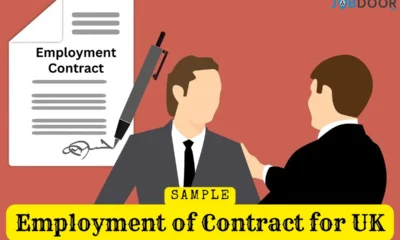
 Career7 months ago
Career7 months agoStandard Employment Contract Template Example for UK (Word & PDF)
-

 Job Description7 months ago
Job Description7 months agoSupport Worker Job Description: Qualifications, Skills, Salary, Working Hours
-

 News8 months ago
News8 months agoTop 10 Richest Countries in 2024 By GDP Per Capita
-

 Career9 months ago
Career9 months ago12 IT Jobs That Don’t Require Coding Skills









